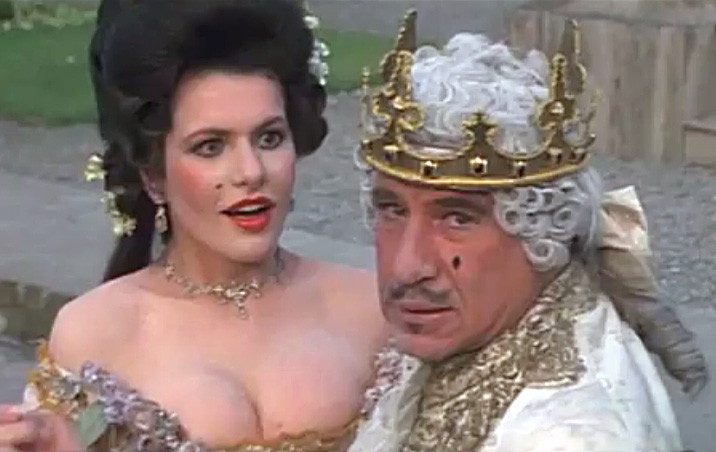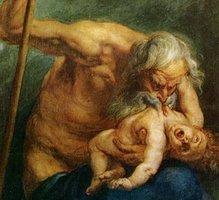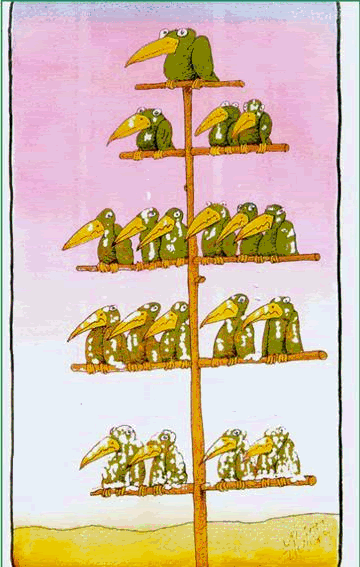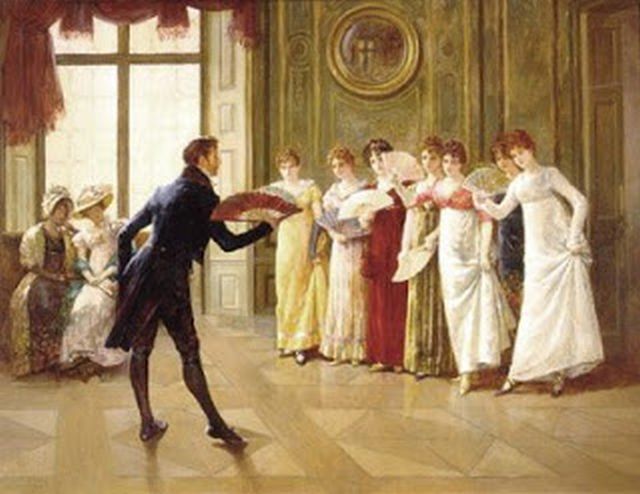The Box Set
By Richard Baker and Colin McComb

Cover art in this thing is pretty bad.

”Birthright” is more commonly associated with a multi-billion dollar propaganda campaign by the nation of Israel to wine and dine people of Jewish descent to convince them to provide political support for the country's military aid. It has been so successful that even after Netanyahu broke a treaty, tried to start a nuclear war, and taunted the American president inside the American Capitol Building, even discussions of reducing the military aid that Israel receives are not on the table for either political party. Birthright has successfully got itself sufficient numbers of political partisans on both the left and the right that there is literally nothing the prime minister of Israel could do that would seriously jeopardize the United States' continued military support of the country.

Also there's this... thing. Where the Birthright campaign is supported by a series of increasingly insane Christian groups who believe that Israel fighting a giant world-devastating war in the Middle East is a prelude to Jesus coming back and raising all their loved ones from the dead. For them, the prime minister of Israel acting like a war mad lunatic is a feature, not a bug.
But this review isn't about any of that Middle East crap. This review is about the 2nd Edition AD&D® campaign setting that also happens to be called “Birthright.” While we considered doing “Cities of the Sun” where the Birthright campaign setting does their Middle East expies, we have elected instead to do the basic box set.
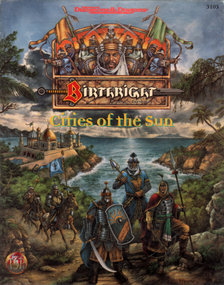
Some day perhaps. But not today.

The Box Set contains three books.
Cerilia is not the setting most associated with D&D. It is not, indeed, in the top five, and only makes it into the top ten because there were barely that many official AD&D settings. Most people can name Forgotten Realms, Greyhawk, Dragonlance, Planescape, Ravenloft, Spelljammer, and Dark Sun pretty easily; stuff like Mystara, Birthright, and Red Masque tend to play third fiddle to stuff like Maztica (technically Forgotten Realms), Oriental Adventures (also technically Forgotten Realms), Arcane Age (still Forgotten Realms), Al-Quadim (et tu, Forgotten Realms?), and Red Steel (Mystara).
So what made Birthright different? It was basically an effort to combine Warhammer Fantasy-style narrative campaigns with D&D. That sounds like a complicated but potentially winning combination. If you're unfamiliar with a "narrative campaign," it's a bit like a war game but with some strategic as well as tactical decisions: you have a realm, you're engaged in a conflict with other players, and you make map-level decisions and position your forces a bit like in Dominions, but then you fight skirmish-level battles a bit like Dominions, and that has effects on the macro game based on whether you win or lose, a bit like Dominions.
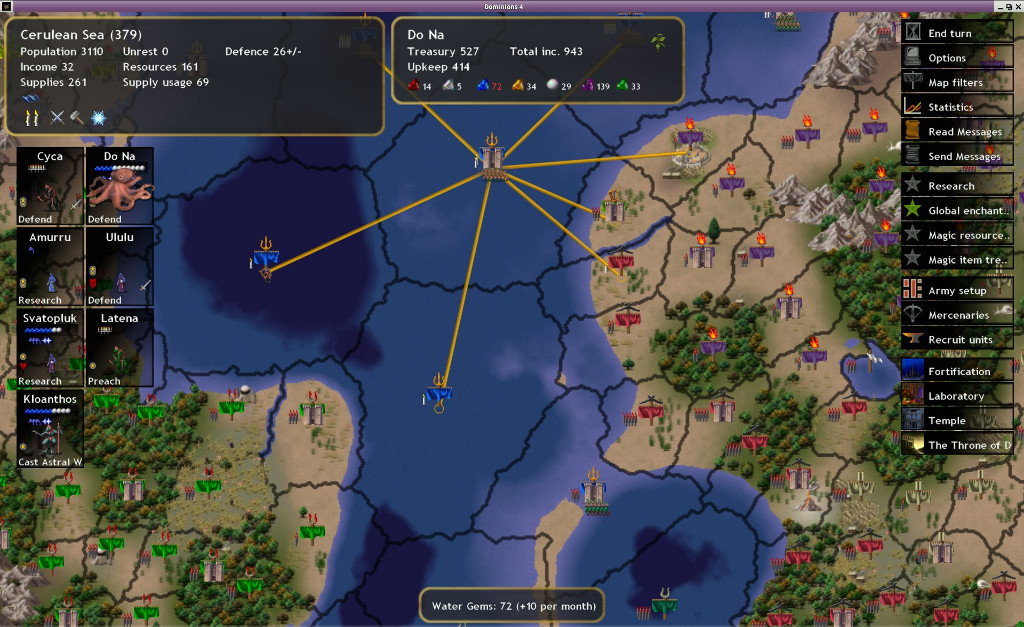
I kinda miss being able to play Dominions
If this all sounds confusing, or like a bunch of people had vaguely similar ideas of trying to play out actual medieval-esque political/military power fantasies in a fantasy setting with monsters and magic - go reward yourself with a cookie. That is exactly the case. Lots of people really want the "what if?" scenario where you can recruit dragons and go torch the neighbor's castle, and there doesn't exist a really good way to model it...though ghost knows people have tried.
Dungeons & Dragons has Lord of the Rings deeply in its roots. To the point that the original D&D got a lawsuit pointed right at its face by Tolkien's estate for the use of the names Hobbit and Ent. Also Orc, but Gygax was able to successfully argue in court that Orc wasn't a protected term because it was an old Saxon word for dangerous stranger and he had just as much right to name pig faced monstrous humans that as Tolkien did. But regardless, the point is that D&D is heavily influenced by Tolkien at every level even when it is legally required to claim otherwise. And so when D&D reaches for climaxes, it usually wants to do battles between Orcs and Elves or duels between Wizards. Which is fine and all, but when your giant battles system is a hot mess, you mostly end up with just wizard fight after wizard fight. And while that can be suitably epic, if looked at from the wrong angle it's basically just old men slapping each other with their walking sticks.

Old men. Falling down.
So it's not really that surprising that people sometimes say “When can we get the castles and the armies that this game promised us?” And this usually just involves mumbling and shuffling your feet, because as mentioned before the kingdom management and mass battles rules for this game have been mostly lacking entirely when they weren't simply unplayable. Now, Birthright was an attempt to fix that. Now, at this point you're probably asking something along the lines of “Hey Frank – isn't Birthright a setting? Why in the name of Cthulhu would you attempt to fix a general problem like the inadequacy of rules for running domains by creating a new setting that nominally did not impact campaigns people were already running? In any sane world, wouldn't all these ideas, good and bad, go into a brown covered book called 'The Complete Kingdom' or something?” And yeah... that's pretty much everyone's reaction to Birthright, which is probably why the setting never did that well.
But honestly, that is a very good question. There's not really any reason for the big ideas of this setting to be attached to a specific setting. The Forgotten Realms and Greyhawk and shit already have kings and armies and so on and so forth. Becoming a lord and getting your own realm was promised in the Player's Handbook of the previous edition.
As best we can discern, Birthright is a separate entity for two reasons. The first is that probably Ed Greenwood didn't want cooties from the guy who wrote the Complete Book of Elves getting on his LotR self insert slashfic. And the second, and probably bigger reason was that TSR was making mad stacks of money in 1994 and was actively looking for excuses to write more books. So between the two of those, Birthright went from “an idea about a Domain Management minigame” to “a bloated thirty book series of obscurica.” Historically, we do know that Birthright was an epic fail financially, which probably has a lot to do with the fact that the entire setting seemed like a superfluous attempt to sell more books even at the time.
There is a third reason: Birthright begins and ends by taking a huge steaming pile of shit on a lot of PCs and NPCs. Normal PCs are usually very specifically not nobility, and D&D traditionally works very hard from them becoming nobility. Oh sure, you can hit 9th level and become a Lord, but the whole inherited nobility/bloodline thing gets into super-creepy Divine Right of Kings bullshit pretty damn fast - even Tolkien tripped over his elf dick in Lord of the Rings with that sort of thing.

And thus was founded the line of kings of Gondor for the next three thousand years.
The thing is, one of the core conceits of Birthright is that your character's mother did indeed get fucked by lord such-and-such, and because of that You Are Special. If she paid the stablehand to look the other way while she entertained the Centaur Ambassador, you are fucked. Maybe literally, if you can convince your partner you're genetically hung like a horse.
So that's a major reason Birthright wasn't exactly generic to begin with: the core conceit is that you couldn't earn it, you had to be born with it. Or: "PCs, fuck off" in big, bold letters.

You have to be chosen.
The Birthright line is immense. There are seriously 31 books for this thing. It came out in 1995, and pretty much wasn't continued when TSR went bankrupt in 1997, but there's still a slow trickle of procedurally generated crap going out until WotC folded AD&D in 2000. But while Blood Spawn: Creatures of Light and Shadow flopped out at the end of the cycle, 90% of this shit came out in just three years. Just think of what had to have been going on in the company for this to have happened. The entire line must have been greenlighted before the first box set shipped. Before anyone knew if there was a market for any of this, the company had already issued writing contracts for thirty fucking books. If people want to know why TSR went bankrupt two years later, this is why.

This was a heady time for TSR. While they were losing market share to White Wolf, they were still the kings of the hill. And that hill was pretty big. Dragon Magazine had a circulation of 125,000. Every month. D&D books were a license to print money, and TSR responded to that information by greenlighting all the books. Within a year of this box set, players could buy a 32 page “book” called Player's Secrets of Stjordvik. As it happens, they did not. But this is where TSR was coming from and going to.
We make fun of 21st century White Wolf for their endless shovelware – and we are right to do so. And it's important to note that while TSR was bankrupting itself with overprinting book titles, they never matched the raw word output that electronic submissions of emailed Word documents allowed. So yes, Scion was one million words long spread out over three shelf breakers that came out inside a single year, while Birthright got Tribes of the Heartless Waste (by Ed Stark), a 64 page book in a rather generous font. But Tribes of the Heartless Waste also came with a bunch of cardboard sheets of tokens to represent Russianesque barbarians, and you've never heard of it. So I'm almost sure that it lost money.
And it is precisely this over use of publishing resources that ultimately took down the company. There simply isn't enough shelf space in a typical gaming store to have sixteen different Player's Secrets books for different regions of a third tier AD&D setting. Let alone questions of whether peoples' appetite for 2nd Edition AD&D Birthright Setting region books was going to equal their demand for like Vampire: the Masquerade Clan Books, I just don't know where TSR thought they were going to get shelf space for all this shit. Frankly, I don't think such mundane concerns of practicality entered into it at all. They simply saw that D&D books made money so they decided to make more books to make more money.
This isn't even the only time D&D has fallen into this trap. It's similar to the 4th edition D&D thing where they decided that core rulebooks sold for money so they decided to write a dozen “core rulebooks” for 4th edition in its first year. And like every other time gaming companies have tried that approach, it failed. There just is a maximum number of products you can sell, and Birthright represented the physical point in 1995 where that line was crossed by TSR.
The Rulebook
Introduction
for Alexandria Lynn
Birthright had a half dozen novels written for it, but the last one (The Falcon and the Wolf) was never printed and WotC ended up selling off the digital proofs in 2000 after they had given up on bringing the line back in any real form.Random House and its affiliate companies have worldwide distribution rights in the book trade for English language products of TSR, Inc.
TSR never adopted the systematic approach to designing the various settings that made up its publishing empire that White Wolf did; it just wasn't that organized. As such, there is almost zero crossover between the different game lines. There's no promise that any given book for Birthright is going to look like any given book for Dark Sun or Forgotten Realms or whatever in either style or content - with the sole exception of the Monstrous Compendiums, because that at least was a semi-standardized format that most of the writers could agree on.

And even there, Birthright had to be different.
Of the two 96 page rulebooks in the boxed set, the rulebook named Rulebook is probably the one we should start with, so that's what we're gonna do. The book opens with an introduction. Well, it cold opens with the sentence “Dark storms gather over war torn lands.” But as rapidly becomes apparent, we are in the introduction now.
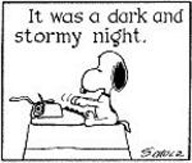
One of the most annoying things about Birthright books is that they put chapter headers in the body of the text part way down the page. I mean, it's a look, but it's a bad look. I'm not going to say that there are never any advancements in the world of typography. There was a dark time before the invention of Helvetica (anything before 1957 is the “Before Helvetica” period of typography, which is why people read so much more today than they did in the early fifties). But in general, if your typographer tells you that she has some new ideas she wants to try out, you should probably just punch her in the mouth. It would save time.
The introduction itself is one page long and half of it is a sidebar discussing new terms. But even the regular text defines some terms for us, like awnsheghlien, which is an Elvish word meaning that Colin McComb couldn't go five minutes without spurging out about Elves and the awesomeness that they possessed. The sidebar is for noting that domain management involves taking month long turns called action rounds which are grouped into three turn blocks called domain turns. And I'm using italics and bolding as the book does, because not all of these terms have their own entries so blood abilities, Regency Points, and holdings are defined (or at least referenced) inside list items, while Bloodline, Domain, and Regency are list items.
Birthright loses the plot on the very first page because the ruler of a domain is called a “Regent.” But Regent is a real word with a real meaning, and that meaning is someone who performs the duties of the head of state without actually being the head of state. It's very weird to me that no one at TSfuckingR knew that extremely basic piece of royalty terminology trivia.
tl;dr version: in the mythic past, legendary heroes (read: not you) won a battle and were imbued with the essence of the gods; these dudes and dudettes went on to found bloodlines with supernatural powers, and basically ran shit.
The strength of your magical sperm-and-egg patterns depends on your domain (the area or organization you control), the types of holdings it has, and your overall competence. Theoretically, you could have a bloodline baker who rules her coffee shop with an iron fist, as have her ancestors for generations, but they tend to leave this shit out.
So Birthright consists of your immediate adventures, and a larger kingdom management sub-game between sessions. It gets more complicated from there, but you kids go have fun.
Let's not beat around the bush too much: the whole Eugenics-themed divine right of Kings by Blood thing that Birthright has going on is creepy as fuck. Also extremely disruptive to a role playing game. An RPG is an ensemble activity, which means that there are three to six co-protagonists. Which means that all this “one true king” shit is pretty hard on the role play dynamics.
But aside from the difficulties of writing an RPG with power discrepancies baked in from the beginning (which can be done, but is actually quite hard), there's the whole issue that having some people be “better” than other people because of divine mandates on their blood is actually anathema to almost every moral system subscribed to by modern humans. I say “almost” because there are still alt-right neo-reactionaries. But fuck those guys.

You get a very smidgen of this attitude in the difference between PCs and NPCs in oD&D, and in NPC-only classes in D&D3. You think Fighter class has it hard? Look at the Warrior. Birthright does something similar - the only real Wizards in the setting are Regent Wizards; pretty much all the other magic-users are explicitly Magicians, who can only cast low-level spells...ever...and are cutoff from the powerful War Spells and Domain Magic that was brought to full fapping fury in The Book of Magecraft.

It's a point that is very difficult not to hammer home. In Birthright, there's a literal ceiling on what you can do. It's not quite as explicit as racial level limits (which are also in Birthright), but it's largely in the same vein. And while we might find that disturbing from an "all men are created equal" standpoint...it's also important to realize that there is a very real appeal to that idea to a lot of adolescents.
Look at mutants, in the X-Men comics. Cursed with awesome, it's not their fault but they're just better than you (indeed, in the early 90s being homo superior meant you were immune to HIV!) When you're young and have no agency, being revealed as the scion of an ancient line and heir to great powers and being special just for who you are clicks a lot of buttons. These are people that don't want to spend twenty years learning to be Batman, they want to be the Last Son of Krypton. It's an ego-trip that feeds into a desire not for acceptance but implicit elitism. If you feel like getting your Nietzsche on, it's master morality as a teenaged rebellion to slave morality.
Which is fucked.
Next up: Part I of this book addresses characters in the BIRTHRIGHT campaign setting. Because no one remembered to punch the typesetter in the mouth and “Part I: Birthright Characters” is not at the top of the page and also formatted shittily in all lowercase because of the previously mentioned critical lack of mouth punching.
There's three books and 228 pages to go through, but we can plow through it fairly quickly as there is a lot of redundancy.

